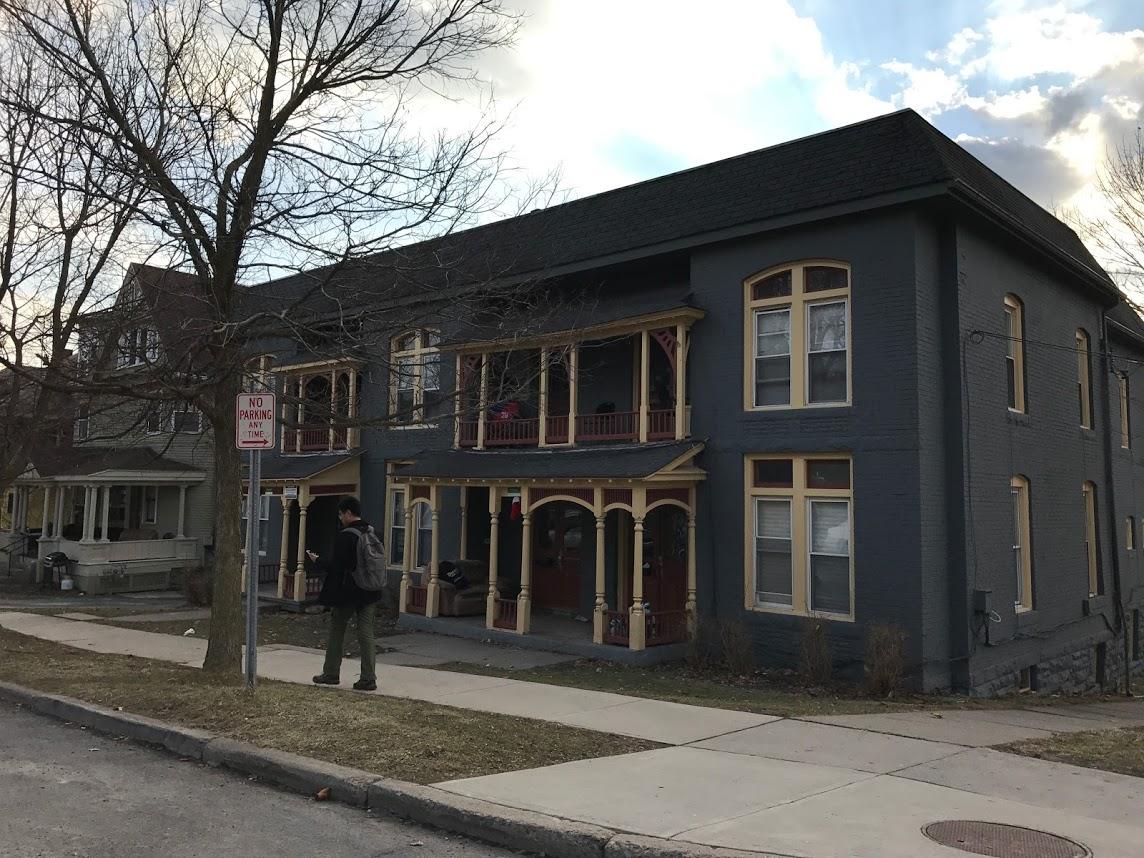Ithaca, NY is a “college town” in every sense of the phrase. Cornell University and Ithaca College students make up a significant portion of the population, and as a result, contribute heavily to the economic success of Ithaca. For the past several years, many members of the city’s student population have been living off-campus and have found themselves paying high prices for apartments.
A recent article from The Ithaca Voice reported that Cornell University is at “maximum” housing capacity. As a result, many Cornell students are forced to live off campus, with some options priced as high as $2,000 a month. Cornell University Provost Michael Kotlikoff said in a news release that the lack of on-campus housing drives students into Collegetown and the surrounding East Hill area.
Denise Thompson, Cornell University’s off-campus living manager, said Cornell was initially intended to have a majority of its students live off-campus in order to integrate them into the community.
“Cornell was meant to be a non-residential college,” Thompson said. “[The founders] wanted the students living among the neighbors and among the community. As things progressed, they did build some living units. They have built residence halls, but that wasn’t their main focus.”
Karla Terry, a board member of the Landlord’s Association of Tompkins County, said since Cornell is meant to be a non-residential college, the idea that the housing is at maximum capacity is misleading.
The problem, however, is that Collegetown, the most coveted housing area near Cornell’s campus, is home to some of the most expensive rent rates in the city, per several reports. The average cost for rent in Collegetown is currently around $1,100 per month. Over the course of the 10-month average stay for a student during the academic year, the average price can total near $13,000. The cost to live on-campus, which has become competitive in recent years, averages around $13,000 with a meal plan. As of 2016, 52 percent of Cornell’s undergraduate student population lived off-campus.

Thompson said many Cornell students believe in a “housing crunch” myth, in that housing must be secured a year before move-in date.
“When I started working here six years ago, the housing crunch was in November. But now, it’s before classes start. It’s not a healthy market,” she said. “The properties that go so quickly are really in Collegetown, where there’s big houses and it’s the fun area. The housing crunch does not affect north campus, Cornell Heights, West Campus or Fall Creek. When you have everybody talking about a housing crunch, people assume they’re talking about all housing in Ithaca and the surrounding area.”
Kyle Friend, a senior at Cornell University and reporter for The Ithaca Voice, said high rent rates are sometimes the result of the income level of the average resident.
“There is no one single reason for the high price of off-campus housing,” Friend said. “There is the fact that Cornell students are, to put it bluntly, pretty loaded relative to permanent residents, so they can afford high rents that people who work in Ithaca cannot.”
Thompson said many Cornell students she works with are financially able to pay the rates to live off-campus. But some have spoken out against the high prices in recent years. In an editorial by The Cornell Daily Sun, the Cornell housing situation was described as a “crisis” in response to the University’s decision to turn a dormitory into administrative space.
“The decrease in available and affordable housing on campus will require action from the University before the housing crisis becomes even more detrimental for Cornell and Ithaca,” the Sun Editorial Staff wrote. “With the loss of these dorms, more students will likely be forced into the already saturated Collegetown market, which could result in higher prices for students and Ithacans alike.”
Cornell students have expressed concerns that a lack of available apartments will lead to increased rent prices. Terry, however, said the notion that housing prices increase due to a lack of space is not accurate.
“Some believe if there are fewer apartments available, then the costs are driven up,” she said. “I would say that, from my perspective, that’s not a correct statement. [Landlords] don’t just increase rent prices because of the number of apartments out there. If someone can’t rent their apartment, they’re not going to increase their cost because no one’s going to want to rent it.”
Some in the Ithaca community have said that more housing should be built around the city, but others have been vocal against new developments. Peggy Thorpe, another board member of the TCLA, said that many current residents don’t want new buildings in response to outside developer’s interest in building throughout the city.

“In college town, a while ago there was some concern about the new building developments but I think the bigger picture of that is the new buildings being built by developers and not necessarily by people that are invested in the community,” Thorpe said.
Friend said in order to fix the housing “crisis,” more housing must be developed for all segments of the community.
“It requires a multi-part strategy, one that includes the development of housing projects for all segments of the market – student, low-income and the middle-class,” he said. “Middle-class seniors, in particular, are impacted significantly by the crisis. Rents are still rising, albeit at a slower rate than usual.”
Terry said that ultimately, the community isn’t against more housing for students, but it must be developed by those already within the Ithaca community.
“People want to make sure that someone that cares about the community, that the development’s that’s being done has the spirit of the community in mind,” she said.
The housing issue throughout the Cornell area has no one dominant opinion or solution, but it’s clear that the Ithaca community will be working to solve the problem in the near future.







